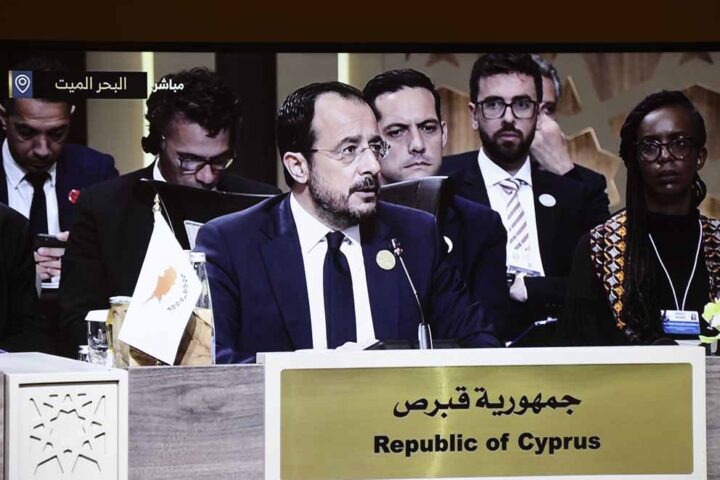What Cyprus needed all this time was for someone, anyone, to take the initiative and lead the country in efforts to close the digital divide.
Random initiatives remained uncoordinated with no one willing to take the authority and responsibility that goes with it, to reform the system, improving our work methods and way of life, and generally contributing to raising the level of competitiveness.
A while back, the Cabinet decided to digitise all its meetings, cutting down on paperwork and introducing efficiency by slashing the transmission time of inter-ministerial communication.
Some public services were also digitised and posted on the government portal, but in most cases, documents were uploaded in their electronic form, still obliging the average citizen to print, sign, scan and submit, physically or electronically.
Then came the coronavirus outbreak, initially played down as nothing more than a simple virus, that quickly mutated into a full-blown pandemic, forcing everyone to stand still and think hard about what went wrong and where to go next.
It is often said that out of every crisis there comes opportunity, but once again the thumb’s rule in Cyprus was to follow the herd and imitate others, instead of grabbing the bull by its horns.
The private sector adapted quickly, introducing work-from-home procedures that until a few months ago were unthinkable because some employers had not realised that we are well into the 21st century.
Where state services are industry-driven, such as shipping and tourism, changes were swift, and decisions were made.
Where industry is state-driven, such as the entire education ecosystem, everything came to standstill.
That is when the newly established Digital and Innovation Deputy Ministry stepped in, clearly to close the administrative and coordinating chasm that exists within the government machine.
The junior minister in charge, Kyriacos Kokkinos, revealed during a discussion on state TV on Thursday that IT experts had “rushed” to the Education Ministry to help with the implementation of the e-learning programme.
However, it also transpired during the CyBC interview that since 2016 the education ministry had been paying Microsoft huge amounts in license fees for the Teams communication platform, prompting teachers to implement it immediately after the lockdown measures were imposed.
This begs the question – why were we (taxpayers) paying Microsoft for four years?
Why did teachers require ‘training’? Why were the individual user licenses not issued months, if not years ago? And why did it take weeks for teachers and students to receive their license codes?
As a result, chaos ensued, teachers had a fit, once again refusing to adapt to change, and forcing the state schools’ curriculum to end on March 10, complacent with doing revision instead of introducing new material.
The digital junior minister went out of his way to justify the incompetence of others in government, which he did not need to do.
He explained that private schools were quick to adapt and continue with fresh classroom material because they are ‘small’ units of a few hundred pupils or students.
Whereas state schools were part of a huge system, where apart from the technical side of e-learning, the teaching material had to be transformed to make it online-compatible.
In other words, teachers were not prepared to get out of their comfort zone and introduce modern teaching methods.
Furthermore, Kokkinos repeated what the Education Minister had declared from the outset, that e-learning was here to stay and not a temporary measure to satisfy the whims of the teachers’ unions.
As Kokkinos explained, we are the ‘digital nomads’ who are still wandering, while the younger generation is known as the ‘digital natives’ who were born with a built-in system to embrace technology.
The digital junior minister also revealed that his department was working to ‘fully digitise’ some 165 state services, which would be ready in a few weeks, as well as working with other ministries to use online facilities as a way to reform the government machine.
He said that e-justice was the next priority, while asked about digital signatures, he dropped another bombshell – that legislation had passed in parliament some two years ago and that MPs should vote on digital identification “very soon”.
The Deputy Minister has his hands full, considering that this was a department of the executive branch that should have been set up years ago.
He should stop being diplomatic and be more outspoken, critical where progress is not welcome and giving high praise where it is worth when it comes to being more digitally skilled.
Next lesson let’s teach civil servants how to pick up the phone. By which time, perhaps we will not need them at all.










